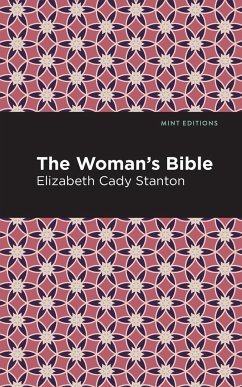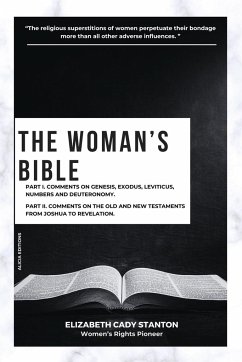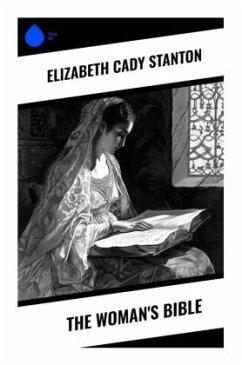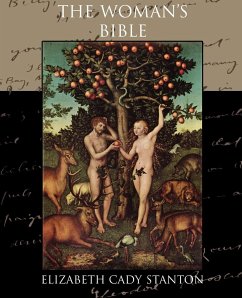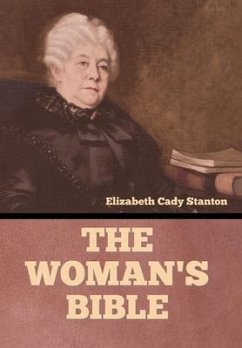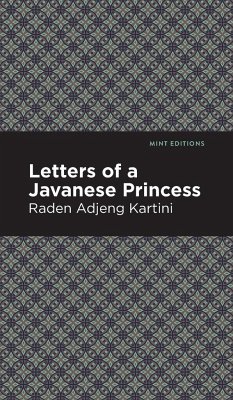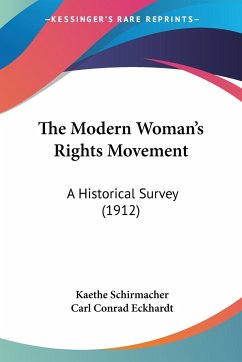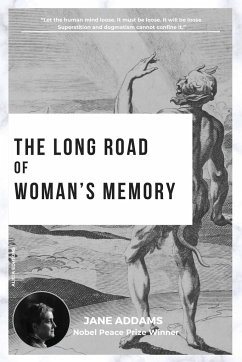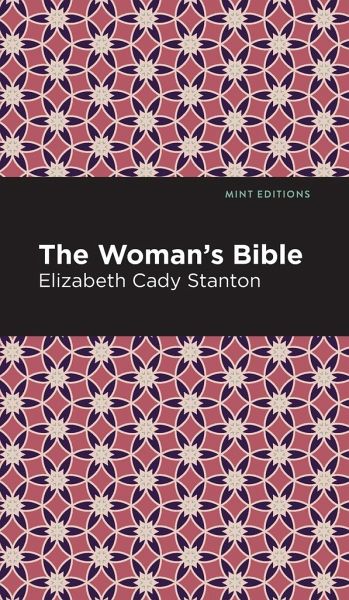
The Woman's Bible

PAYBACK Punkte
12 °P sammeln!
The Woman's Bible (1895-1898) is a work of religious and political nonfiction by American women's rights activist Elizabeth Cady Stanton. Despite its popular success, The Woman's Bible caused a rift in the movement between Stanton and her supporters and those who believed that to wade into religious waters would hurt the suffragist cause. Reactions from the press, political establishment, and much of the reading public were overwhelmingly negative, accusing Stanton of blasphemy and sacrilege while refusing to engage with the book's message: to reconsider the historical reception of the Bible i...
The Woman's Bible (1895-1898) is a work of religious and political nonfiction by American women's rights activist Elizabeth Cady Stanton. Despite its popular success, The Woman's Bible caused a rift in the movement between Stanton and her supporters and those who believed that to wade into religious waters would hurt the suffragist cause. Reactions from the press, political establishment, and much of the reading public were overwhelmingly negative, accusing Stanton of blasphemy and sacrilege while refusing to engage with the book's message: to reconsider the historical reception of the Bible in order to make room for women to be afforded equality in their private and public lives. Working with a Revising Committee of 26 members of the National American Woman Suffrage Association, Stanton sought to provide an updated commentary on the Bible that would highlight passages allowing for an interpretation of scripture harmonious with the cause of the women's rights movement. Inspired by activist and Quaker Lucretia Mott's use of Bible verses to dispel the arguments of bigots opposed to women's rights and abolition, Stanton hoped to establish a new way of framing the history and religious representation of women that could resist similar arguments that held up the Bible as precedent for the continued oppression of women. Starting with an interpretation of the Genesis story of Adam and Eve, Stanton attempts to show where men and women are treated as equals in the Bible, eventually working through both the Old and New Testaments. In its day, The Woman's Bible was a radically important revisioning of women's place in scripture that Stanton and her collaborators hoped would open the door for women to obtain the rights they had long been systematically denied. This edition of Elizabeth Cady Stanton's The Woman's Bible is a classic of American literature reimagined for modern readers. Since our inception in 2020, Mint Editions has kept sustainability and innovation at the forefront of our mission. Each and every Mint Edition title gets a fresh, professionally typeset manuscript and a dazzling new cover, all while maintaining the integrity of the original book. With thousands of titles in our collection, we aim to spotlight diverse public domain works to help them find modern audiences. Mint Editions celebrates a breadth of literary works, curated from both canonical and overlooked classics from writers around the globe.




